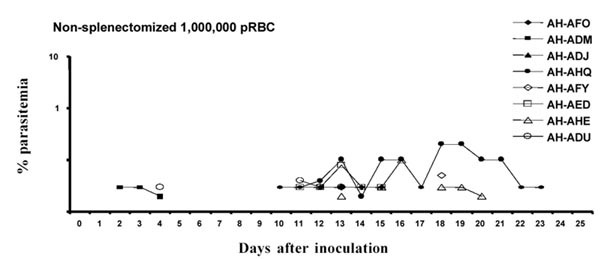Severe anemia is the earliest and a frequently fatal complication of Plasmodium falciparum infection. Here we describe Aotus infulatus as a primate model suitable to study this malaria complication. Both non-splenectomized and splenectomized monkeys receiving different inocula of P. falciparum FVO strain presented large (> 50%) decreases in hematocrit values during infection. Non-splenectomized animals were able to control parasite growth (parasitemia did not exceed 4%), but they had to be treated because of severe anemia. Three of 4 splenectomized monkeys did not control parasitemia and were treated, but developed severe anemia after treatment when presenting a negative blood film. Destruction of parasitized red blood cells alone cannot account for the degree of anemia. Non-splenectomized monkeys repeatedly infected with homologous parasites became rapidly and progressively resistant to reinfection and to the development of severe anemia. The data presented here point to A. infulatus as a suitable model for studying the pathogenesis of severe malarial infection.
malaria; Plasmodium falciparum; Aotus infulatus; primate model




